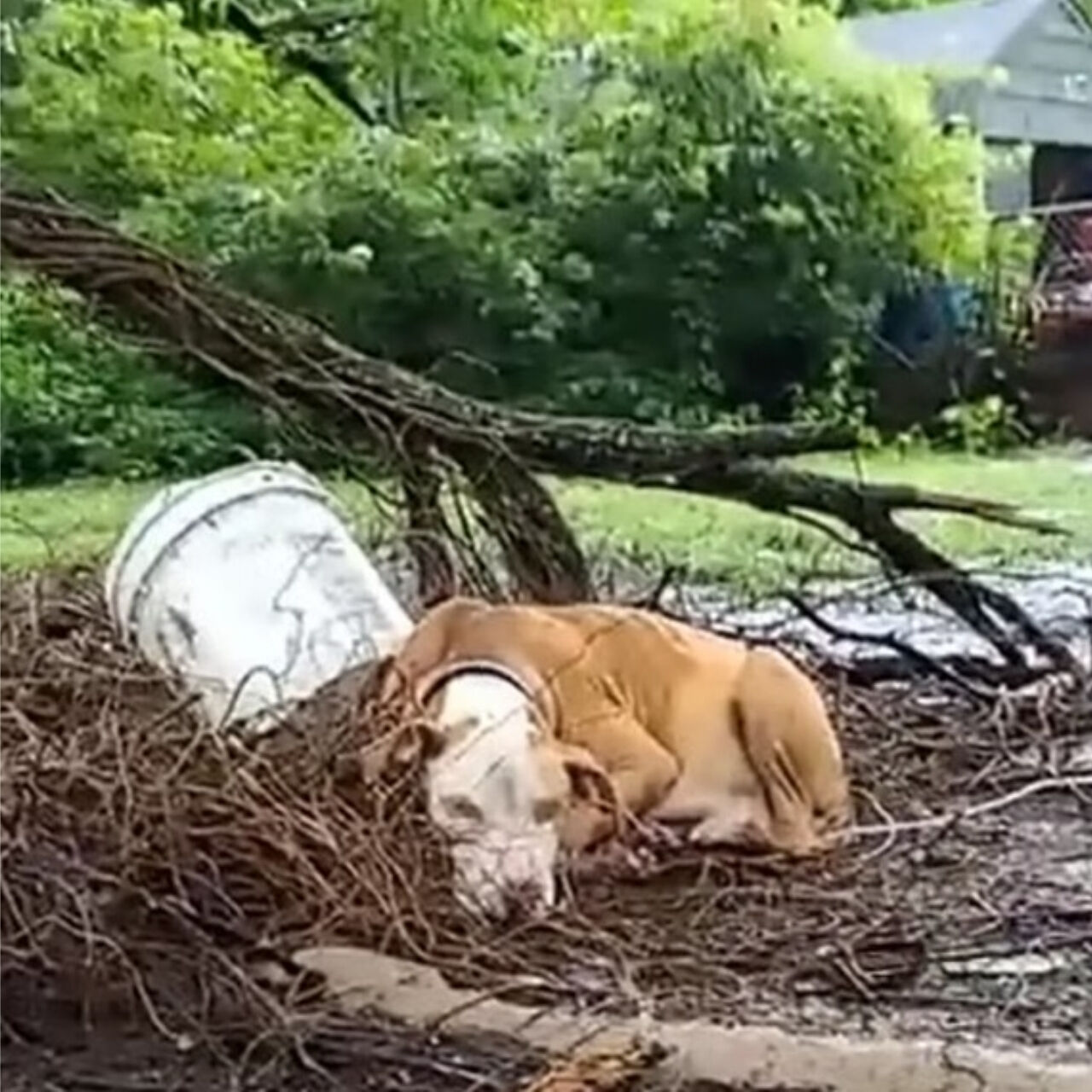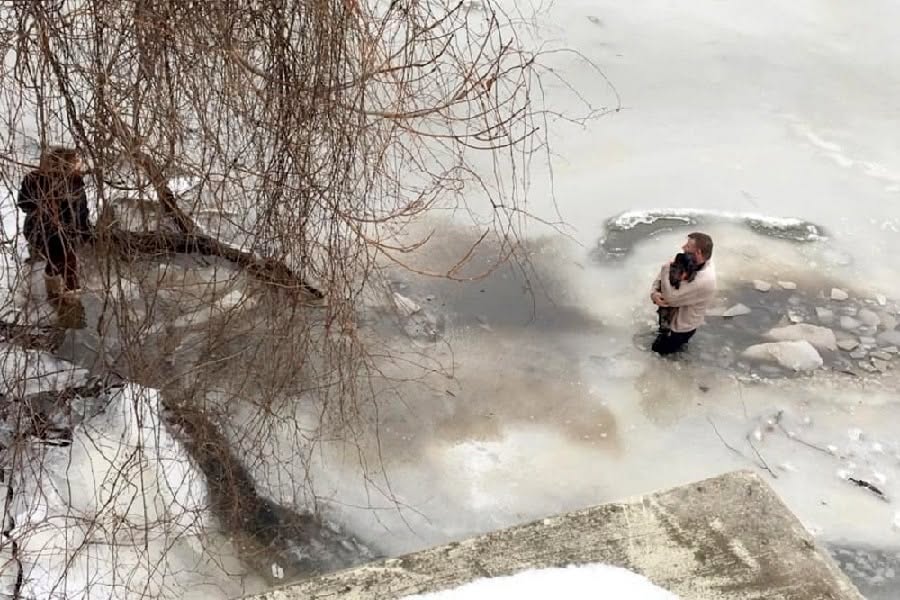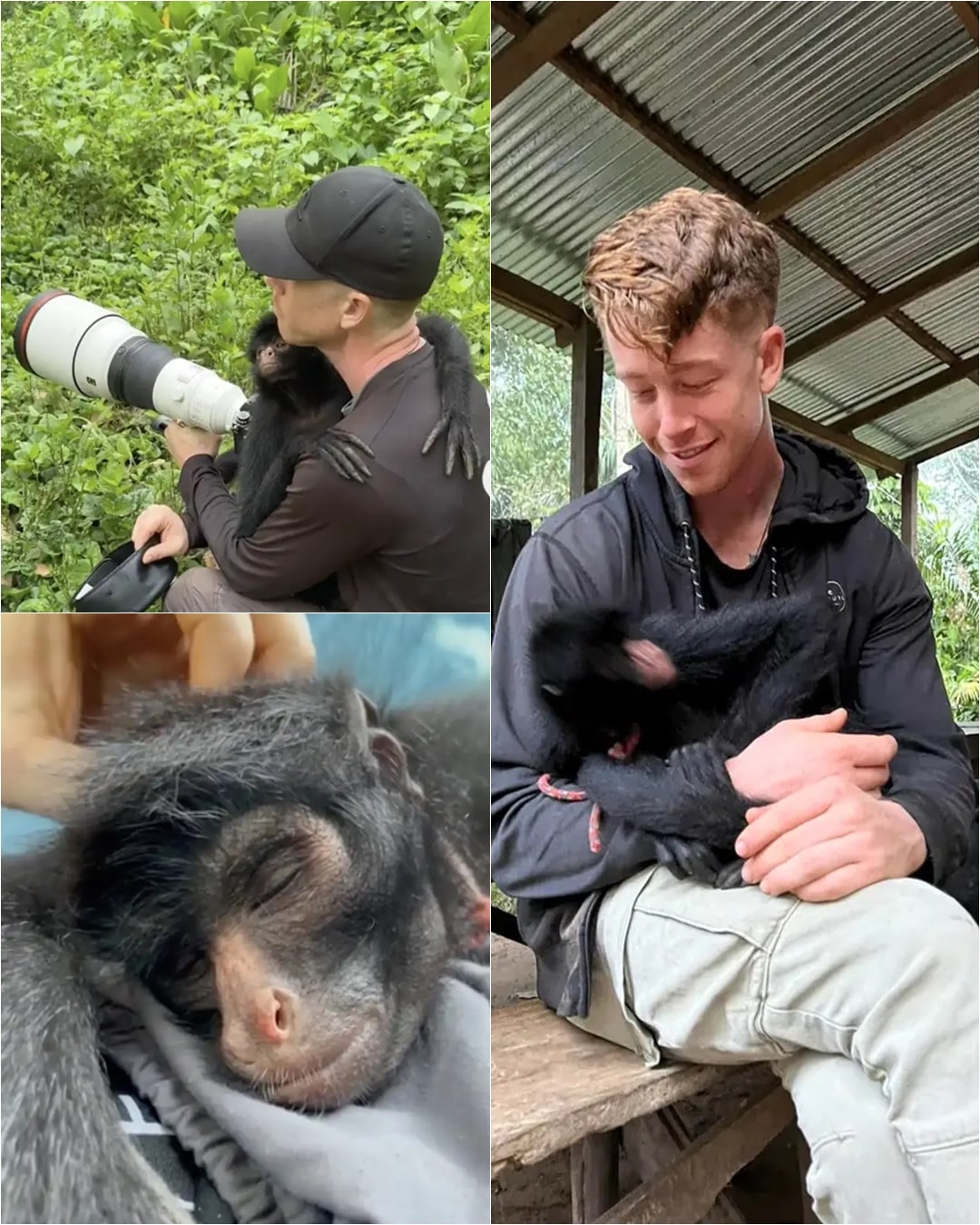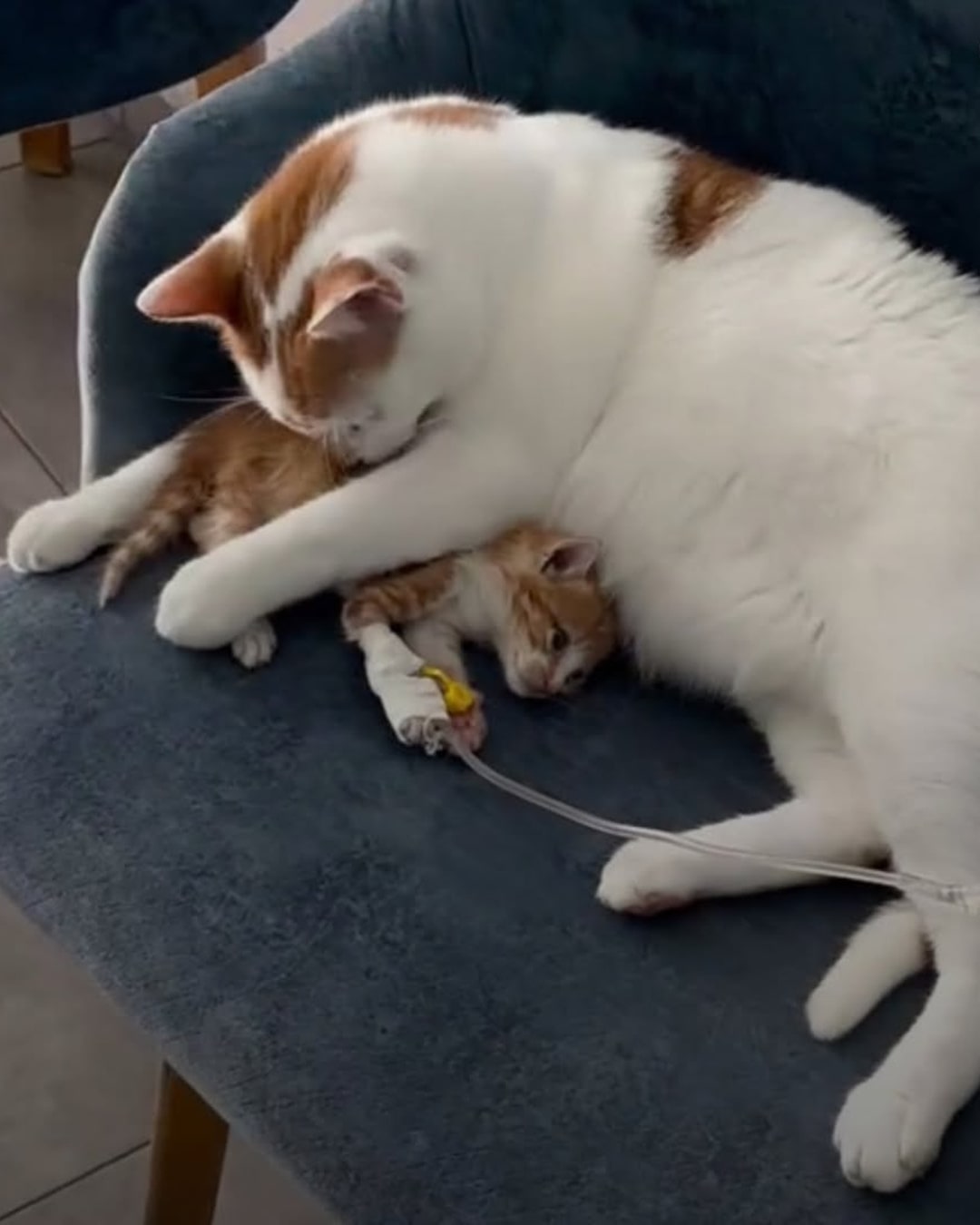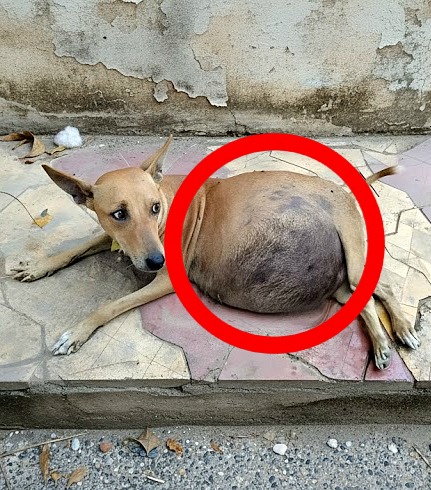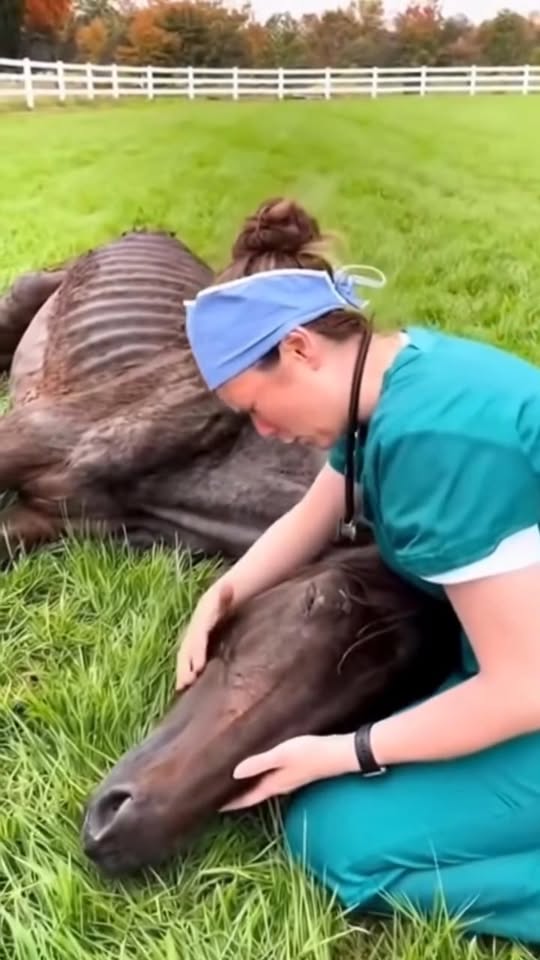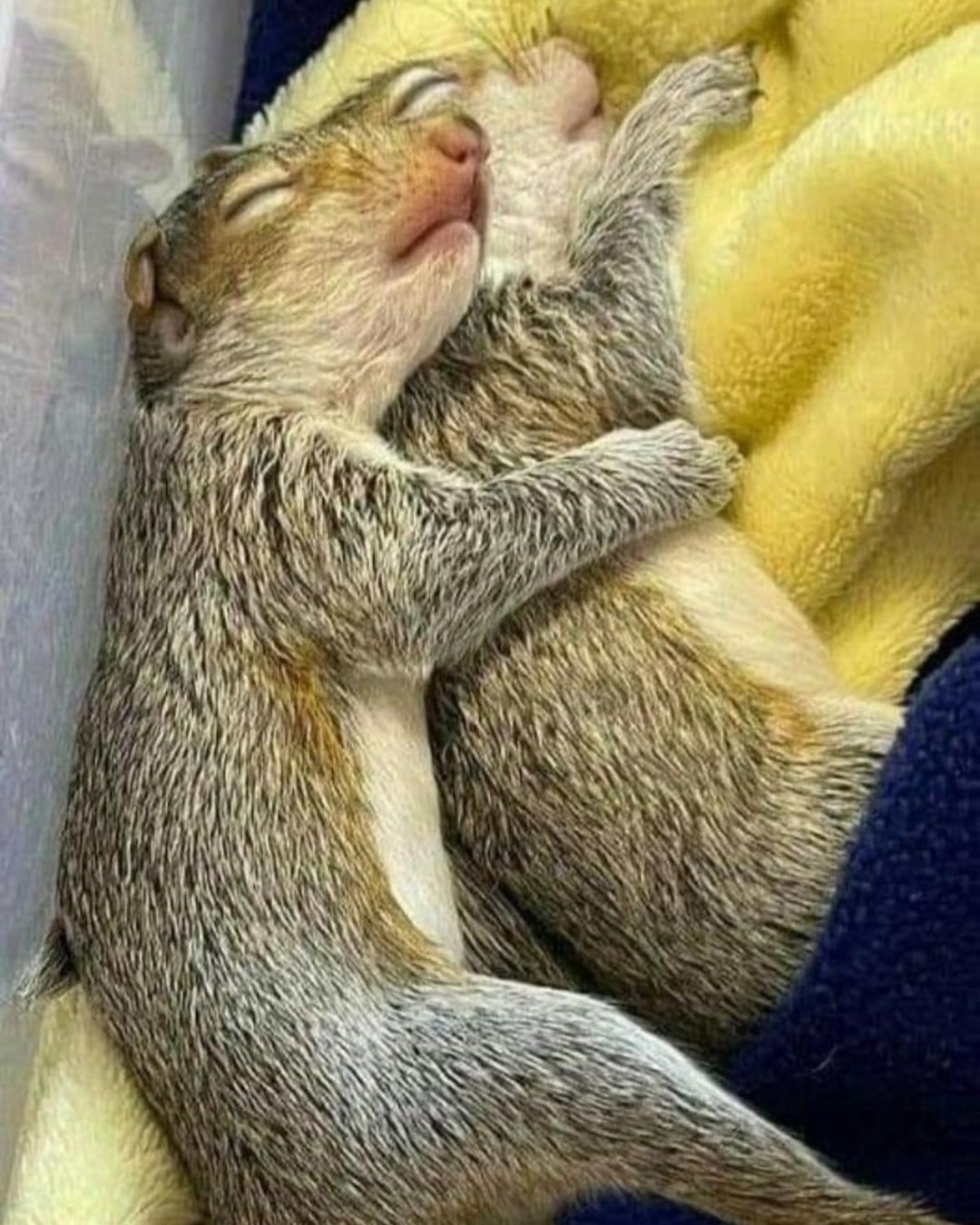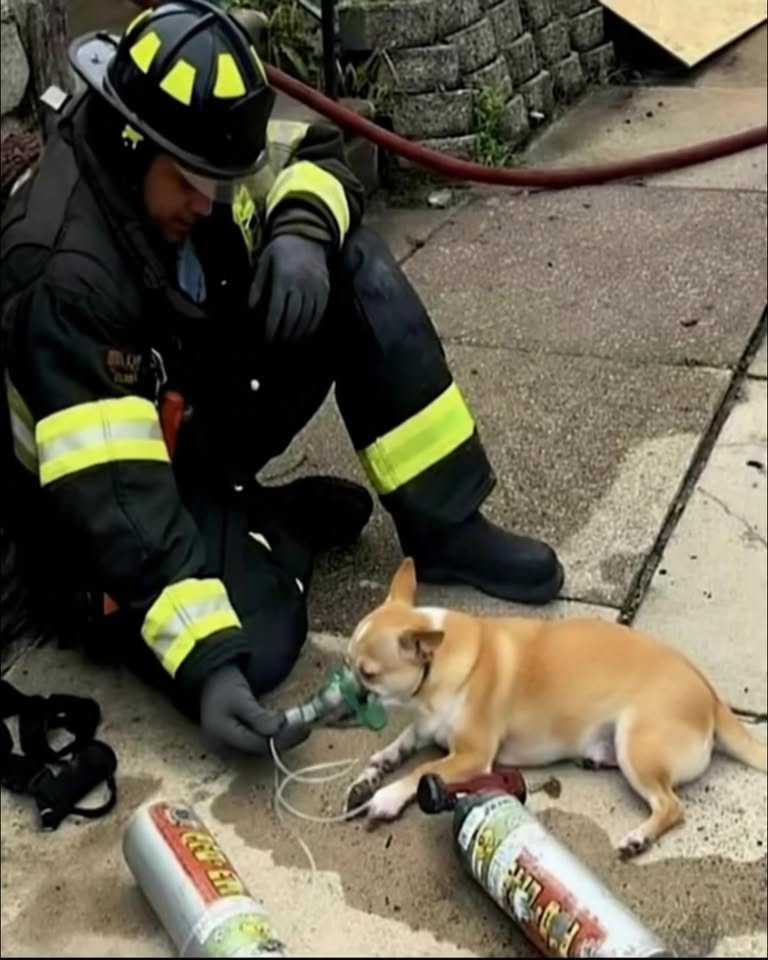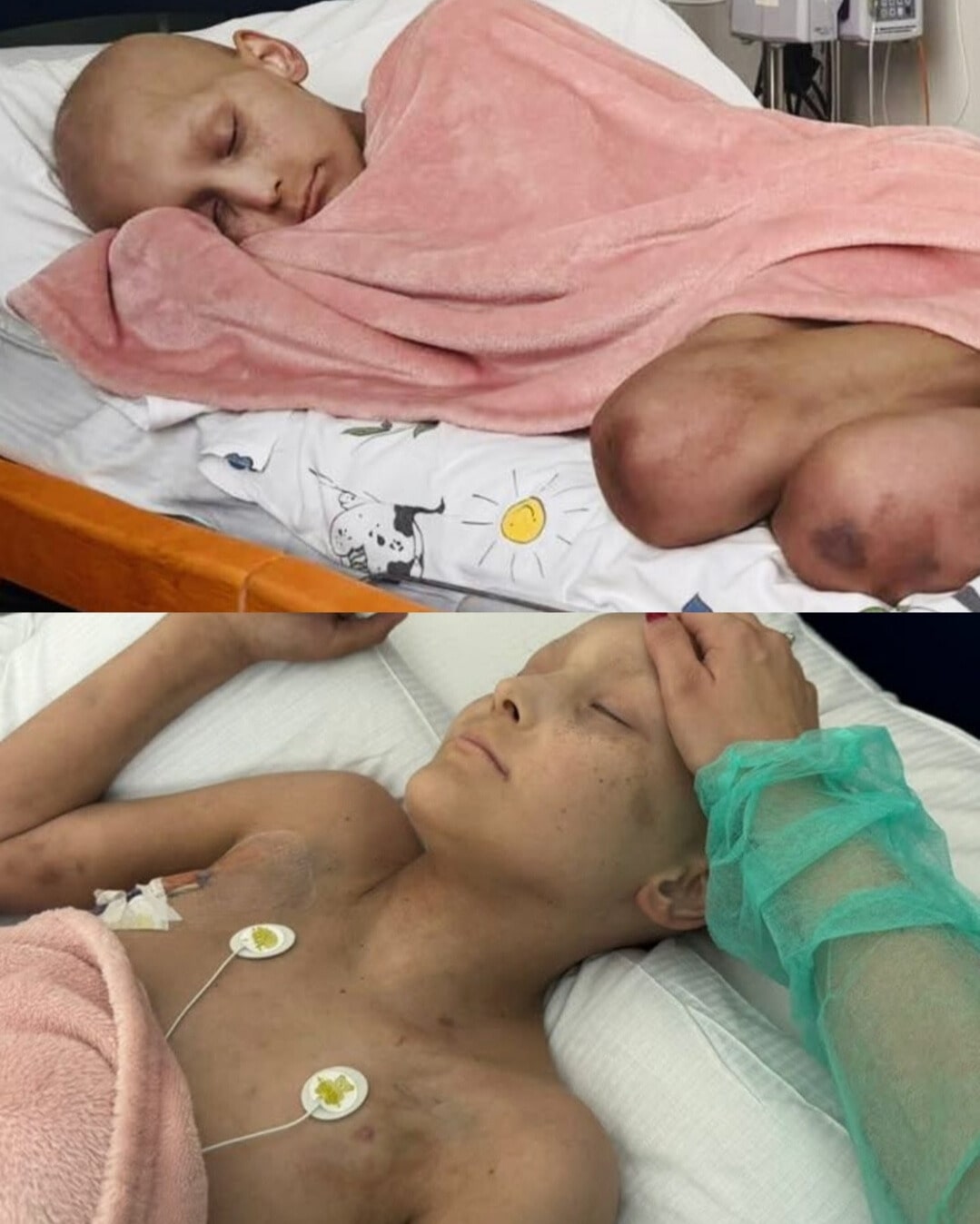When photographer Casey Cooper first met Mikah, a rescued spider monkey in Bolivia, she surprised him with a hug around the neck—a bond that would change both their lives.
For months, Cooper spent nearly every day helping Mikah adjust to life in the wild, guiding her through fear and tension until she was finally accepted into a troop. It was the moment he’d worked for: she no longer needed him. Still, walking away was hard.
Years later, Cooper returned to the rainforest—and Mikah found him. She came down from the trees, wrapped her arms around him once again, and even showed him she was pregnant. The connection was still there, unchanged by time.
He didn’t stay—because she was wild now, exactly as they had hoped. But their reunion was a powerful reminder: true love and trust are never forgotten.
This remarkable encounter in the heart of the Bolivian rainforest is more than just a touching story; it is a profound testament to the deep, complex emotional lives of animals and the unbreakable connections that can form across species barriers. The story of Casey Cooper and Mikah the spider monkey resonates so deeply because it challenges our understanding of memory, loyalty, and the very nature of love itself. To fully grasp the significance of their reunion, one must first understand the perilous journey that brought them together—a journey that began with trauma and ended in a freedom that was hard-won. Mikah was a victim of the illegal pet trade, a cruel industry that tears infant animals from their mothers and sentences them to a life of captivity, often marked by neglect and abuse. When she was rescued, she was not just physically displaced; she was psychologically scarred, filled with a deep-seated fear and distrust of the world.
Casey Cooper, a wildlife photographer and conservationist, did not see a mere animal in need of care. He saw an individual who had been wronged, a soul that needed healing. His approach was not one of a keeper, but of a mentor and a friend. The process of rehabilitating a wild animal for reintroduction is a delicate and arduous one. It is not simply about providing food and shelter. It is a painstaking process of rebuilding trust, reawakening instincts, and teaching the complex social and survival skills necessary to thrive in a perilous natural environment. Cooper became Mikah’s bridge between a life of human dependence and a future of wild autonomy. Day after day, he would patiently sit with her, his calm presence a stark contrast to the chaos she had previously known. He guided her through the canopy, showing her which fruits were safe to eat and how to navigate the intricate network of branches. He was teaching her to be a spider monkey again.
This period of intense mentorship forged their unique bond. The hug that surprised him on their first meeting became a recurring symbol of their connection—a gesture of trust and affection that transcended the need for words. For Mikah, Cooper was a source of stability in a world she was relearning to navigate. For Cooper, Mikah was a daily reminder of the intelligence, resilience, and profound emotional capacity of the creatures with whom we share our planet. But the ultimate goal of their work together was, paradoxically, their separation. The entire purpose of wildlife rehabilitation is to make oneself obsolete. Success is measured not by the animal’s dependence, but by its independence. The day Mikah was finally accepted by a wild troop of spider monkeys was the pinnacle of their shared efforts. It was a moment of immense triumph for conservation, but for Cooper, it was also a moment of personal, heartfelt loss. To love something enough to set it free is one of the most selfless acts imaginable, and walking away from the rainforest, leaving Mikah to her new life, was a testament to the depth of his commitment to her well-being.
Years passed. Cooper continued his vital work in wildlife photography and conservation, his experiences with Mikah fueling his passion. Meanwhile, Mikah lived the life she was born for. She thrived in the wild, mastering the rhythms of the rainforest, foraging, socializing, and eventually finding a mate. She was no longer a rescue case but a wild, free, and successful spider monkey, a testament to the success of the rehabilitation program. The memory of her human friend might have seemed a distant chapter from a past life, a faint echo in a world now filled with the immediate demands of survival. Yet, the emotional imprint of their bond remained, etched deep within her consciousness.
When Cooper returned to that same area of the Bolivian jungle years later, he held no expectation of seeing her again. The rainforest is vast, and the life of a wild animal is unpredictable. But the jungle has its own memory. As he ventured through the familiar territory, a rustling in the canopy above caught his attention. It was Mikah. The recognition was instantaneous, mutual, and electric. Without hesitation, she descended from the safety of the treetops, bridging the years of separation in a matter of moments. The hug she offered him was not the tentative embrace of a scared rescue, but the confident, loving greeting of an old friend. It was a gesture that spoke volumes, communicating a message of remembrance, gratitude, and enduring affection.
The most poignant moment of their reunion, however, was when she gently pulled his hand to her belly, revealing her pregnancy. This was the ultimate validation of their journey. She was not just surviving; she was creating new life, contributing to the future of her species in the wild. She was showing him the full, beautiful extent of the life he had given back to her. This profound act of communication demonstrated a level of intelligence and emotional awareness that continues to captivate all who hear their story. She wasn’t just a successful case study; she was a friend sharing her life’s most important news. Cooper’s decision to leave again, to not linger in that beautiful moment, was as crucial as his initial decision to walk away years before. Her life was there, in the canopy, with her troop and her unborn child. He was a cherished part of her past, but her future was wild and free. Their bond did not require his constant presence to exist; it was a permanent connection, a truth that time and distance could not erase. Their story serves as a powerful, inspiring symbol for conservation efforts worldwide, proving that every single animal matters, and that the work of rescue and rehabilitation can have a lasting, generational impact. It reminds us that trust, once earned, is a powerful force, and that the deepest connections we make are never truly broken.
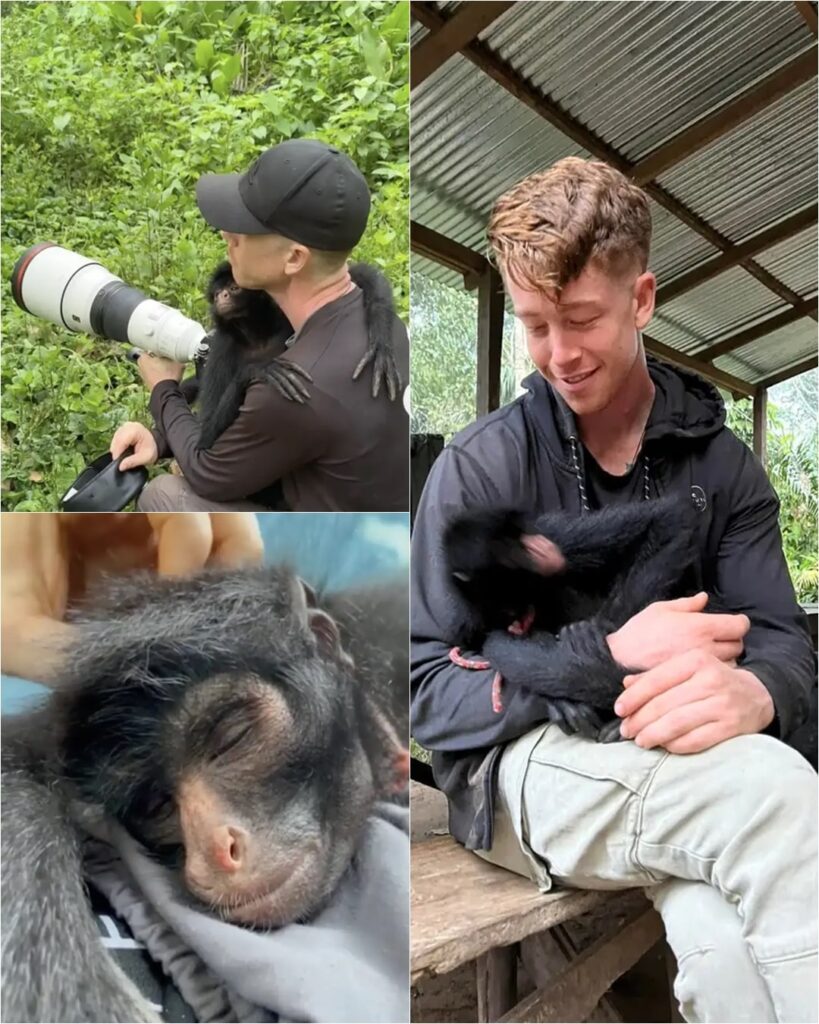
When photographer Casey Cooper first met Mikah, a rescued spider monkey in Bolivia, she surprised him with a hug around the neck—a bond that would change both their lives. For months, Cooper spent nearly every day helping Mikah adjust to life in the wild, guiding her through fear and tension until she was finally accepted into a troop. It was the moment he’d worked for: she no longer needed him. Still, walking away was hard. Years later, Cooper returned to the rainforest—and Mikah found him. She came down from the trees, wrapped her arms around him once again, and even showed him she was pregnant. The connection was still there, unchanged by time. He didn’t stay—because she was wild now, exactly as they had hoped. But their reunion was a powerful reminder: true love and trust are never forgotten.





